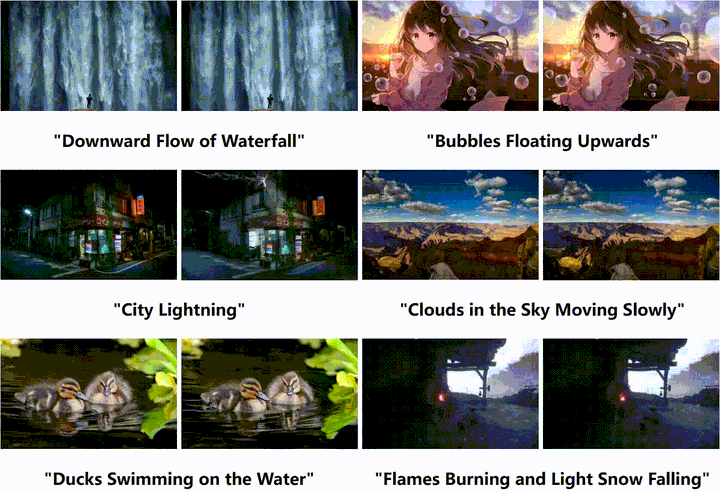Cinemo: Consistent and Controllable Image Animation with Motion Diffusion Models

Abstract
Diffusion models have achieved great progress in image animation due to powerful generative capabilities. However, maintaining spatio-temporal consistency with detailed information from the input static image over time (e.g., style, background, and object of the input static image) and ensuring smoothness in animated video narratives guided by textual prompts still remains challenging. In this paper, we introduce Cinemo, a novel image animation approach towards achieving better motion controllability, as well as stronger temporal consistency and smoothness. In general, we propose three effective strategies at the training and inference stages of Cinemo to accomplish our goal. At the training stage, Cinemo focuses on learning the distribution of motion residuals, rather than directly predicting subsequent via a motion diffusion model. Additionally, a structural similarity index-based strategy is proposed to enable Cinemo to have better controllability of motion intensity. At the inference stage, a noise refinement technique based on discrete cosine transformation is introduced to mitigate sudden motion changes. Such three strategies enable Cinemo to produce highly consistent, smooth, and motion-controllable results. Compared to previous methods, Cinemo offers simpler and more precise user controllability. Extensive experiments against several state-of-the-art methods, including both commercial tools and research approaches, across multiple metrics, demonstrate the effectiveness and superiority of our proposed approach.